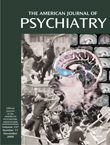Reliability and Validity of DSM-IV Axis V
Abstract
OBJECTIVE: The authors investigated the reliability and convergent and discriminant validity of the DSM-IV Global Assessment of Functioning Scale and two experimental DSM-IV axis V global rating scales, the Global Assessment of Relational Functioning Scale and the Social and Occupational Functioning Assessment Scale. METHOD: Forty-four patients admitted to a university-based outpatient community clinic were rated by trained clinicians on the three DSM-IV axis V scales. Patients also completed self-report measures of DSM-IV symptoms as well as measures of relational, social, and occupational functioning. RESULTS: The Global Assessment of Functioning Scale, Global Assessment of Relational Functioning Scale, and Social and Occupational Functioning Assessment Scale all exhibited very high levels of interrater reliability. Factor analysis revealed that the Global Assessment of Relational Functioning Scale and the Social and Occupational Functioning Assessment Scale are each more related to the Global Assessment of Functioning Scale individually than they are to each other. The Global Assessment of Functioning Scale was significantly related to concurrent patient responses on the SCL-90-R global severity index. The Social and Occupational Functioning Assessment Scale was significantly related to concurrent patient responses on the SCL-90-R global severity index and to a greater degree with both the Social Adjustment Scale global score and the Inventory of Interpersonal Problems total score. Although the Global Assessment of Relational Functioning Scale was not significantly related to any of the three self-report measures, it was related to the presence of clinician-rated axis II pathology. CONCLUSIONS: The three axis V scales can be scored reliably. The Global Assessment of Relational Functioning Scale and the Social and Occupational Functioning Assessment Scale evaluate different constructs. These findings support the validity of the Global Assessment of Functioning Scale as a scale of global psychopathology; the Social and Occupational Functioning Assessment Scale as a measure of problems in social, occupational, and interpersonal functioning; and the Global Assessment of Relational Functioning Scale as an index of personality pathology. The authors discuss further refinement and use of the three axis V measures in treatment research.



